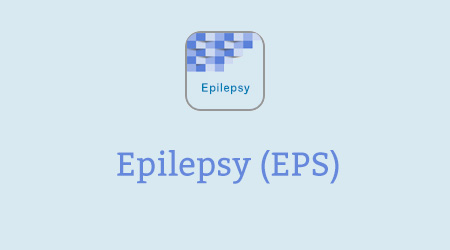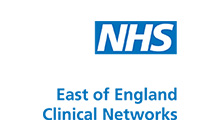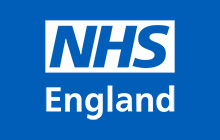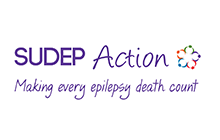

About the Epilepsy programme
 The East of England Clinical Network has commissioned Health Education England elearning for healthcare to develop two sessions to enable colleagues in primary care to better support people living with epilepsy. This was in response to stakeholder indication that such resources were required. The main outcomes are to ensure that GPs have access to a high quality learning module to enable better support for people living with epilepsy and to raise awareness of the whole-person approach to care, resulting in reduced risk of repeat acute admissions and unnecessary deaths within the epilepsy population.
The East of England Clinical Network has commissioned Health Education England elearning for healthcare to develop two sessions to enable colleagues in primary care to better support people living with epilepsy. This was in response to stakeholder indication that such resources were required. The main outcomes are to ensure that GPs have access to a high quality learning module to enable better support for people living with epilepsy and to raise awareness of the whole-person approach to care, resulting in reduced risk of repeat acute admissions and unnecessary deaths within the epilepsy population.
A second course has been added in 2017 in partnership with the charity, SUDEP Action, to enable healthcare professionals, particularly those who are not specialists in Epilepsy, to better understand Sudden Unexpected Death in Epilepsy (SUDEP), how risks can be reduced by healthcare professionals and people with epilepsy, and what is helpful to families after an epilepsy death. The materials in this course have been provided with the kind permission of SUDEP Action and South Western Ambulance Service NHS Foundation Trust. For more information, visit www.sudep.org. The videos have been produced in conjunction with Health and Care Videos, a partnership with Torbay and South Devon NHS Foundation Trust. For more information visit www.healthandcarevideos.com.
More information
East of England Clinical Network and NHS England
Approximately 70% of people diagnosed with epilepsy should be seizure free given the appropriate treatment. Currently it is around 52%. Consequently, 18% of people with epilepsy are currently having seizures when they could be seizure free.
For these people there is a significant impact on their quality of life including driving, relationship difficulties and an increased likelihood of depression. They also have an increased risk of Sudden Unexplained Death in Epilepsy (SUDEP). It is vital that all patients are supported well and that this is recognised and reflected between the secondary care consultant, GP and epilepsy specialist nurse where one exists. Due to variability in service provision, many people are not receiving the support they require outside of hospital. This leads to an increased risk of seizures, acute emergency admissions and inadequate support for specific issues such as pregnancy, safety and employment.
It is therefore vital that GPs have access to a high quality learning module to enable better support of people living with epilepsy. Without this resource there is a risk of continued inadequacies in the treatment and care of people with epilepsy. A risk of continued burden on the health care system in terms of repeat and unnecessary acute admissions and risk of continued unnecessary deaths within the epilepsy population, which could be reduced or prevented.
-
Course content
Course content
The objectives of this course are:
- To improve the confidence of GPs in supporting people living with epilepsy in general practice.
- To ensure that GPs understand the role of primary care in the support of people living with epilepsy.
- To improve the quality of patient annual reviews.
- To ensure the patient’s condition is as well controlled as possible, thereby reducing the incidence of SUDEP and unplanned admissions.
- To improve the quality of life for people living with epilepsy by improving the management of their seizures, directing them to support from third sector organisations as well as information on employment, benefits and driving, taking a more holistic approach.
- To raise awareness of the psychosocial issues people living with epilepsy can experience.
- To ensure that those who are not well controlled or who require neurologist input are referred back in to secondary care in an expedient manner.
- To ensure that women of childbearing age are well supported if they are considering starting a family or to prevent unplanned pregnancies.
- To ensure that women who are pregnant receive excellent antenatal and postnatal care.
-
Meet the team
Meet the team
- Victoria Doyle, Quality Improvement Manager, East of England Clinical Network
- Jody Deacon, Quality Improvement Coordinator, East of England Clinical Network
- Greg Rogers, Author
- Max Damian, Author, Reviewer
- Andi Blackmore, Project Manager, HEE elearning for healthcare
- Neha Baj, Content Development Lead, HEE elearning for healthcare
SUDEP Action
Following the death of Charlie Burns (aged 10) from Sudden Unexpected Death in Epilepsy (SUDEP) in October 2011, South Western Ambulance Service NHS Foundation Trust (SWASFT) has been working closely with the Charlie’s family and the charity SUDEP Action to create a training package for health professionals about SUDEP. This course was originally launched in 2016 for emergency staff to develop knowledge on SUDEP to support their working with people with epilepsy. The training consists of videos, lesson plans and slides to cover the topic, and can be completed either individually or in a group training session.
Charlie, had his first seizure on 7 October, 2011, and was attended by a paramedic crew who thought it might be a febrile convulsion. Charlie’s mum then took Charlie to see their GP who suggested he might be suffering from nocturnal epilepsy and referred him to see a neurologist. Tragically, before the neurologist appointment took place, Charlie had a second seizure and died four days later, only a few days after his 10th birthday. Charlie’s parent Jan and Barrie, who can be seen throughout the training videos, say “This was an awful situation with Charlie and we want to turn that around in to something positive. The end result is that we’re hoping, with these training videos, that a significant number of lives are going to be saved.”
-
Course content
Course content
Videos produced in conjunction with Health and Care Videos, a partnership with Torbay and South Devon NHS Foundation Trust. For more information visit www.healthandcarevideos.com.
- PDF: Charlie’s Story – Summary
- PDF: SUDEP – Simple Steps Lesson Plan
- PDF: SUDEP – Simple Steps Learning Outcomes
- Video: SUDEP – The way care is delivered really matters
- Video: What is SUDEP?
- Video: Who are SUDEP Action and what do they do?
- Video: Jan and Barrie Burns talk about the Duty of Candour
- Video: What is SUDEP and what do family and carers need to know?
- Video: What is SUDEP and what do healthcare professionals need to know
- Video: Charlie’s Story – the Full Story
- PowerPoint – SUDEP – Simple Steps Training Slides
-
Meet the team
Meet the team
- Sammy Ashby, Director of Policy and Development, EpSmon & the SUDEP and Seizure Safety Checklist Projects Coordinator, SUDEP Action
- Neha Baj, Content Development Lead, elfh
How to access
In order to access the Epilepsy programme, you will need an elfh account. If you do not have one, then you can register by selecting the Register button below.
To view the Epilepsy programme, select the View button below. If you already have an account with elfh, you will also be able to login and enrol on the programme from the View button.
NHS healthcare staff in England
The Epilepsy programme is also available to NHS healthcare staff via the Electronic Staff Record (ESR). Accessing this elearning via ESR means that your completions will transfer with you throughout your NHS career.
Further details are available here.
Not an NHS organisation?
If you are not an NHS health or care organisation and therefore do not qualify for free access elfh Hub, you may be able to access the service by creating an OpenAthens account.
To check whether or not you qualify for free access via OpenAthens, you can view the eligibility criteria and register on the ‘OpenAthens’ portal.
Registering large numbers of users
If you are a HR, IT or Practice Manager and would like to register and enrol large numbers of staff within your organisation for access onto the Epilepsy programme, please contact elfh directly.
Organisations wishing to use their own LMS
For HR departments wanting to know more about gaining access to courses using an existing Learning Management System please contact elfh directly to express interest.
More information
Please select the following link for more information on how to use the elfh Hub.




